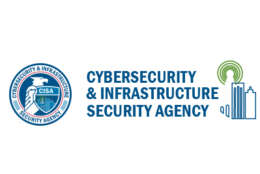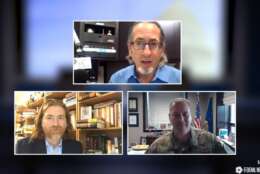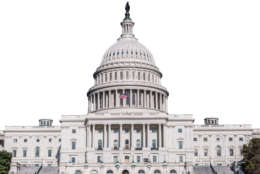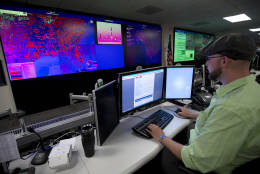CISA
-
Why is the Government Accountability Office testifying on the need for a national cyber strategy aimed at protecting critical infrastructure?
December 15, 2021 -
In today's Federal Newscast: This summer's Post Office rate increases are expected to decrease business and make more money, and the U.S. Fleet Forces Command has a new leader.
July 16, 2021 -
We have heard a lot about CISA since its inception, less than three years ago. One of its top leaders characterizes CISA’s role as “risk adviser” for federal agencies.
July 15, 2021 -
The Senate leaves town without confirming a new CISA director. OPM has its first permanent leader in a year. And the debate over expanding paid family leave for federal employees turns ugly.
June 25, 2021 -
Kevin Walsh, a director on the Government Accountability Office's IT and cybersecurity team, had the latest on GAO's High Risk List on Federal Drive with Tom Temin.
April 28, 2021 -
In the video interview moderated by Federal News Network’s Tom Temin, Sean Connelly of the Cybersecurity and Infrastructure Security Agency and Air Force Brigadier General Chad Raduege, the cyberspace and information dominance director at the Air Combat Command, talk about how to gain trust, the data and workflows required, and the organizational constructs that best foster trust.
September 14, 2020 -
Bryan Ware, the assistant director for cybersecurity at CISA, said improving the Automated Indicator Sharing (AIS) program is one of several initiatives his office is leading to help agencies better deal with the ever-growing, ever-changing cyber risk.
June 29, 2020 -
Federal help to local jurisdictions must come with trust.
February 19, 2020 -
Jeanette Manfra, assistant director for cybersecurity at the Department of Homeland Security’s Cybersecurity and Infrastructure Security Agency, is leaving her post at the end of the year for the private sector, according to a CISA official.
November 21, 2019 -
Agencies and private-sector companies invest considerable resources defending themselves against external cyber threats, but insider threats pose just as great a threat to these organizations if they don’t have a strategy in place to defend against them.
October 10, 2019 -
The Defense Department is adding 5G to the top of its research and engineering investments.
August 13, 2019 -
A new cyber workforce executive order charges multiple agencies to develop a rotational assignment program, which would create details for top talent in and around federal agencies and the private sector.
May 02, 2019 -
U.S. Cyber Command's National Mission Force says one major measure of success will be how much relevant threat data it can supply to the FBI and DHS as part of its ventures into foreign networks.
April 26, 2019 -
In today's Federal Newscast, the personal information of hundreds of federal agents and police officers appears to have been stolen from websites affiliated with alumni of the FBI’s National Academy.
April 16, 2019 -
The Department of Homeland Security is hearing out pitches on emerging tech, but it's more focused on established on securing a consistent IT experience across the agency.
April 11, 2019















